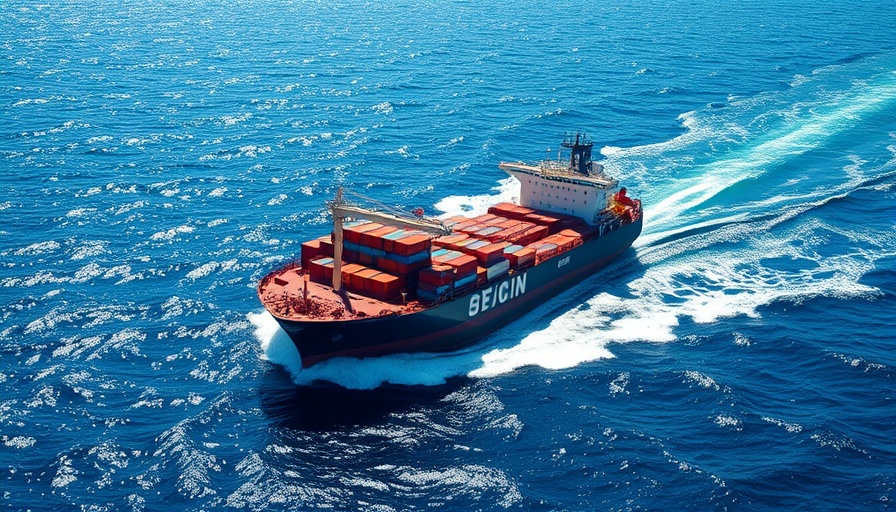
Harnessing AI for Crew Management: A Game-Changer for the Shipping Industry
In an industry where operational efficiency and safety are paramount, companies like MOL are taking significant strides towards innovating crew management through artificial intelligence (AI). As fleet sizes expand and regulations tighten, the challenges of ensuring qualified and compliant crew members intensify. Fortunately, AI emerges as a transformative ally, streamlining complex crew replacement processes while enhancing safety and improving overall efficiency.
The Role of AI in Crew Replacement
Traditionally, managing crews has involved arduous manual processes, from validating certifications to handling vast amounts of crew data, including operational schedules. These are not just tedious but also critical for compliance with maritime laws. AI has the potential to automate many of these repetitive tasks, allowing for faster, more efficient crew management. By providing up-to-date information and automating data entry, AI systems can significantly reduce human error, a common pitfall in crew management practices.
Key Benefits of AI in Crew Management
The implementation of AI in crew management processes offers several advantages:
- Streamlined Operations: AI can automate routine administrative tasks such as updating crew profiles and certifications, allowing for seamless operations. For example, the Cloud Fleet Manager now uses AI to automatically extract and organize seafarer data from uploaded documents, enhancing onboarding speed.
- Improved Compliance: The ability of AI to track certifications and alert managers about expiration ensures compliance with international regulations. This not only avoids costly penalties but also maintains high safety standards.
- Data-Driven Insights: AI doesn’t just oversee operations; it also analyzes crew data for patterns. This information can guide decisions regarding training, scheduling, and resource allocation.
- Predictive Analysis: Forward-thinking companies use AI to predict potential risks and crew efficiency metrics, ultimately allowing for better safety management practices.
Predictive AI's Influence on Safety
Furthering the conversation on AI's role in crew management, predictive technologies are playing a vital role in enhancing safety on board vessels. Companies like JiBe ERP are exploring how predictive intelligence can identify crew members who might be at risk of injury based on extensive data analysis. This proactive approach not only improves workplace safety but also reduces insurance costs and fosters a better working environment.
The Future of Crew Management with AI
The integration of AI into crew management represents more than just technology adoption; it signifies a cultural shift in how the shipping industry operationalizes safety and compliance. As AI continues to evolve, the capabilities in crew management will only expand, leading to smarter, more efficient maritime operations. Companies adopting AI can stay ahead of regulatory changes and operational challenges, driving forward a new era of digital transformation in the shipping sector.
Final Thoughts: Embracing AI for Tomorrow's Challenges
As MOL leads the charge towards AI-enhanced crew management, it sets a precedent for other organizations to follow. The benefits of automated data handling, compliance oversight, and predictive analytics are just the beginning. By embracing these advancements, companies can not only improve their crew management operations but also contribute to safer and more sustainable practices in the maritime industry.
For businesses navigating this digital landscape, being informed about the latest technologies in crew management is critical for maintaining competitive advantage. As we witness the ongoing evolution of AI, staying informed and adaptable will be essential for success in the future of the shipping industry.
 Add Row
Add Row  Add
Add 




Write A Comment